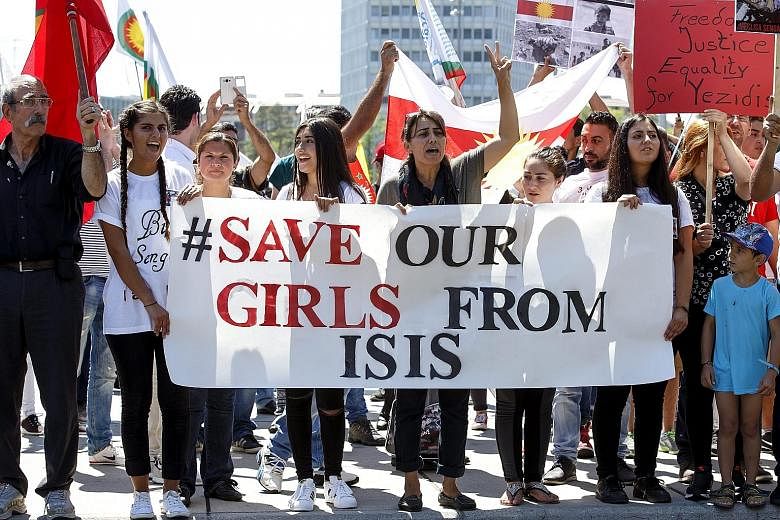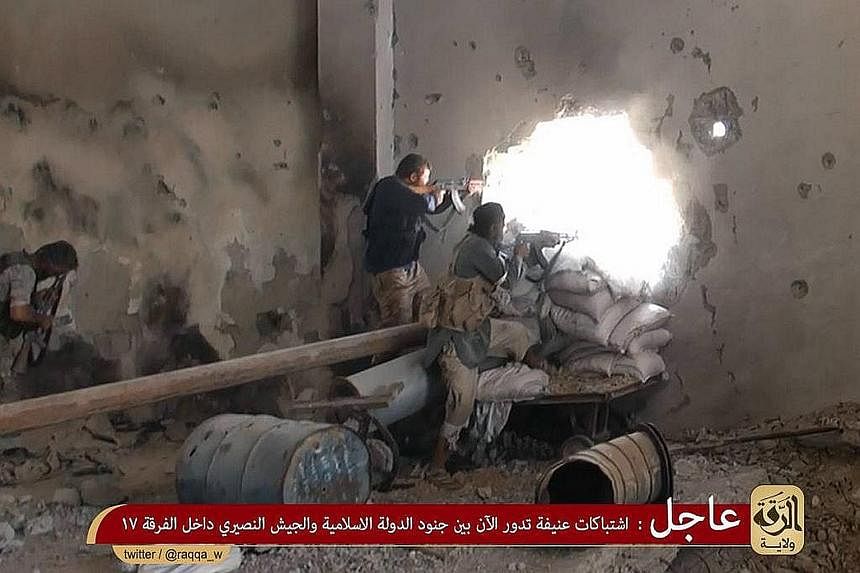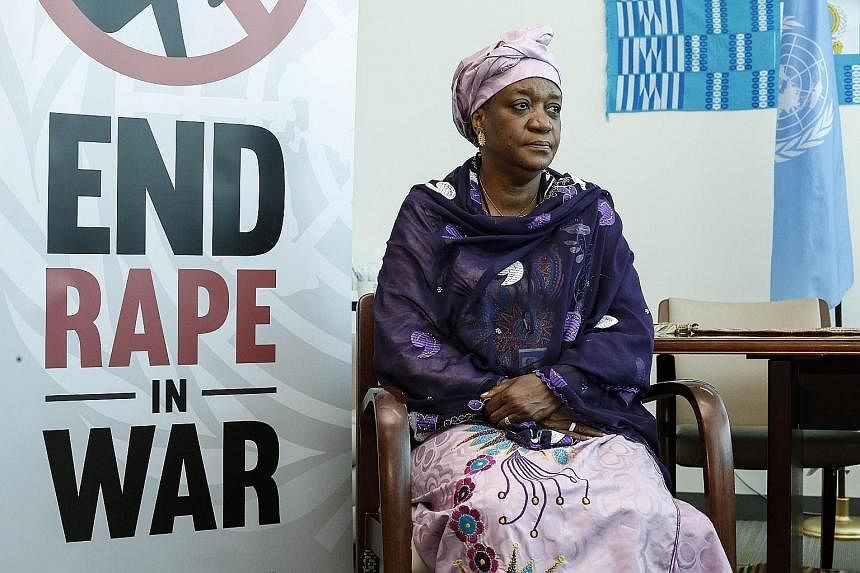NEW YORK • The Islamic State in Iraq and Syria (ISIS) militant group is circulating a slave price list for captured women and children, a senior United Nations official said, adding that the group's appeal and barbarity poses an unprecedented challenge.
The official, Ms Zainab Bangura, said that on a trip to Iraq in April, she was given a copy of an ISIS pamphlet, which included the list, showing that captured children as young as one fetch the highest price. The bidders include both the group's own fighters and wealthy Middle Easterners. The list shows the group's view of the value of those it captures and surfaced some eight months ago, though its authenticity came under question.
Ms Bangura, who is the UN special envoy on sexual violence in conflict and was also in Jordan and Turkey, said she has verified the document came from the ISIS group and reflects real transactions.
"The girls get peddled like barrels of petrol," she said in an interview last week in New York.
"One girl can be sold and bought by five or six different men. Sometimes, these fighters sell the girls back to their families for thousands of dollars of ransom."
For ISIS, the prices in Iraqi dinars for boys and girls aged one to nine are equal to about US$165 (S$230), Ms Bangura said. Prices for adolescent girls are US$124 and it is less for women over 20.
The militia's leaders first take those they wish, after which rich outsiders from the region are permitted to bid thousands of dollars, Ms Bangura said. Those remaining are then offered to the group's fighters for the listed prices.
Ms Bangura, a Muslim and former foreign minister of Sierra Leone, said ISIS, which rules some 207,000 square km across swathes of Iraq and Syria, is unlike other insurgent groups and challenges all known models of fighting them.
"It's not an ordinary rebel group," she said. "When you dismiss them as such, then you are using the tools you are used to. This is different. They have the combination of a conventional military and a well-run organised state."
Officials and scholars have struggled to understand Isis' success despite breaking what are widely seen as rules for insurgents - to be sure to mingle with local populations, not take on established militaries or try to hold territory. The group has broken all those rules and draws thousands of foreign fighters despite its well-publicised savagery.
Assistant Professor Kerry Crawford, who teaches at James Madison University in Harrisonburg, Virginia, said publicising the violations is used to the group's advantage by building internal ties and external fear. "If you and your group are doing something that is considered taboo, your doing it together forms a bond," she said. "Sexual violence does really create fear within a population."
She also said that sexual abuse by soldiers has a long history including the so-called rape camps in the former Yugoslavia in the 1990s.
ISIS has made a particular practice of enslaving communities it has conquered that are not Sunni Muslim - Yazidis and Christians, for example. It portrays such conquests as God's work, drawing disaffected Muslims from around the world.
Ms Bangura said the international community and the UN have been taken aback by such practices because they do not resemble those of village militias in other countries.
"They have a machinery, they have a programme," she said.
"They have a manual on how you treat these women. They have a marriage bureau which organises all of these 'marriages' and the sale of women. They have a price list."
BLOOMBERG



